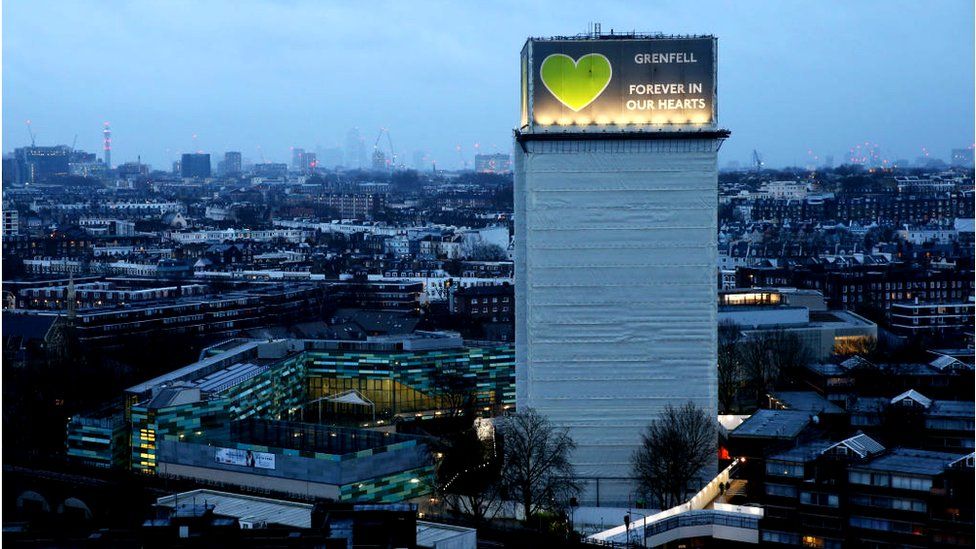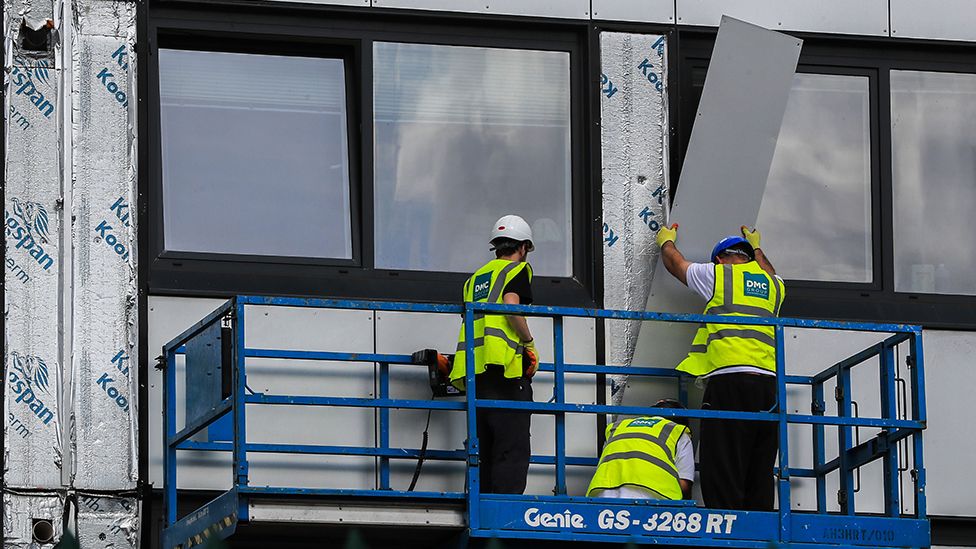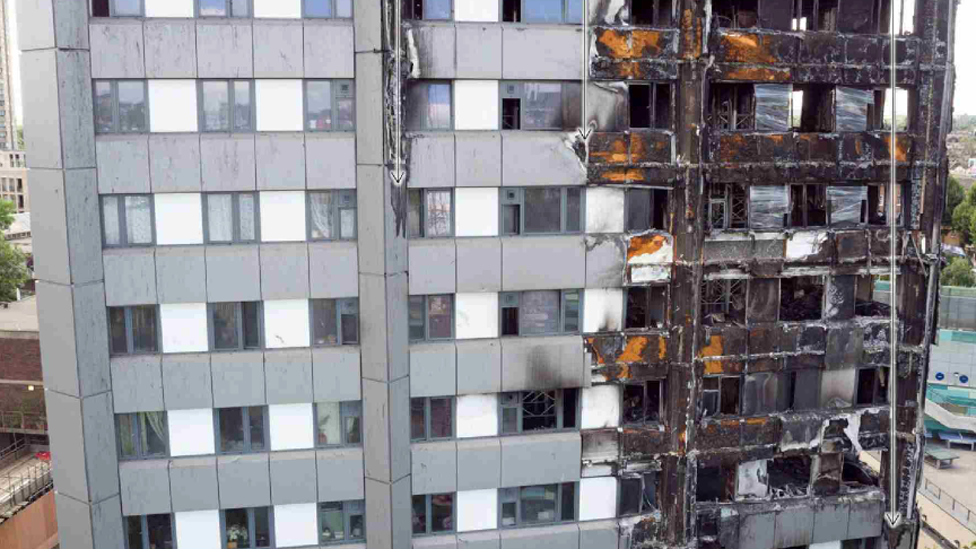 Getty Images
Getty ImagesFlawed government guidance on building standards was partly to blame for the Grenfell Tower fire, Housing Secretary Michael Gove has said.
He believes the system of regulation was “faulty and ambiguous” and not policed properly by the government.
Mr Gove said there was also an “active willingness” on the part of developers to endanger lives for profit.
The inquiry into the 2017 fire – in which 72 people died – has closed and is expected to report later this year.
A final hearing in November was told of “weak” building controls and failures of government as well as “cynical” and “possibly dishonest practices” within the building industry.
The government had previously changed the wording of technical advice that had been criticised for not making clear that combustible cladding panels should not be used on tall buildings.
Asked in an interview with the Sunday Times whether he now accepts the guidance was wrong, Gove said: “Yes. The government did not think hard enough, or police effectively enough, the whole system of building safety.”
He added that ambiguity in the guidance “allowed unscrupulous people to exploit a broken system in a way that led to tragedy”.
- Grenfell: Why are families still waiting for justice?
- Grenfell firms still passing the buck, inquiry told
- Listen to the Grenfell Tower Inquiry podcast
The inquiry heard evidence that some of the companies involved in a 2015 refurbishment of the tower knew, or should have known, that the cladding being installed was flammable and not safe for use on tall buildings.
Richard Millett KC, lead counsel for the inquiry, told the panel it should conclude “with confidence” that all 72 deaths resulting from the fire were “avoidable”.
Mr Gove drew a distinction between “sins of omission and sins of commission”, suggesting that, while the government was guilty of the former, some developers were guilty of the latter.
“There is an active willingness to put people in danger in order to make a profit, which to my mind is a significantly greater sin,” he said.
Mr Millett also accused some of the companies who gave evidence to the inquiry of “indulging in a merry-go-round of blame” so as to “minimise their own exposure to legal liability”.
The government has begun introducing a series of measures intended to force developers to improve the state of buildings they manage or face being blocked from accessing funding or building new homes.
-
Developers to fix unsafe cladding in tall buildings
-
7 October 2022

-
-
What happened at Grenfell Tower?
-
29 October 2019

-
-
Grenfell cladding firm tells inquiry product misused
-
8 November 2022

-
